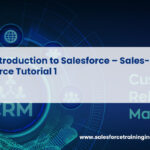Question:
When working with polymorphic fields like Owner or What in Salesforce, which can reference multiple object types, how can I construct a SOQL query that avoids errors when querying fields that may not exist on all possible related objects? For example, if I query the Owner field and include fields specific to User or Group, the query may fail if the field is unavailable on certain object types. How can I dynamically query such fields without running into these errors?
Answer
To dynamically query polymorphic fields in Salesforce without encountering errors, you can use the TYPEOF clause in SOQL. This allows you to specify different fields to retrieve based on the object type being referenced by the polymorphic field.
For example, when querying the What field in the Event object, you can use the TYPEOF clause to specify fields for different object types:
SELECT
TYPEOF What
WHEN Account THEN Phone, NumberOfEmployees
WHEN Opportunity THEN Amount, CloseDate
ELSE Name, Email
END
FROM Event
In this query:
- If
Whatrefers to anAccount, it retrievesPhoneandNumberOfEmployees. - If
Whatrefers to anOpportunity, it retrievesAmountandCloseDate. - For all other object types, it retrieves
NameandEmail.
This ensures that the query executes successfully regardless of the referenced object type.
Using the TYPEOF Clause in Apex:
If you need to dynamically construct and execute the query in Apex, you can do it like this:
String soqlQuery = 'SELECT TYPEOF What ' +
'WHEN Account THEN Phone, NumberOfEmployees ' +
'WHEN Opportunity THEN Amount, CloseDate ' +
'ELSE Name, Email ' +
'END ' +
'FROM Event';
List<SObject> results = Database.query(soqlQuery);This approach ensures that you dynamically handle the object type of the polymorphic field in a single query.
Alternative Approach Without TYPEOF:
If the TYPEOF clause is unavailable or unsuitable for your use case, you can query each object type separately and handle the results programmatically. For example:
List<Event> accountEvents = [SELECT Id, WhatId, What.Phone, What.NumberOfEmployees FROM Event WHERE What.Type = 'Account'];
List<Event> opportunityEvents = [SELECT Id, WhatId, What.Amount, What.CloseDate FROM Event WHERE What.Type = 'Opportunity'];
// Combine the results as needed
List<Event> allEvents = new List<Event>();
allEvents.addAll(accountEvents);
allEvents.addAll(opportunityEvents);While this works, it is less efficient because it requires multiple queries and additional processing in Apex.
Best Practices:
- Use the
TYPEOFclause whenever possible for a more efficient and cleaner solution. - Ensure the fields being queried are accessible based on your organization’s field-level security and user permissions.
- Avoid querying unnecessary fields to minimize the risk of query failures and optimize performance.
By leveraging TYPEOF, you can handle polymorphic fields effectively in SOQL, avoiding errors and maintaining query efficiency.
Enroll for Salesforce Training Designed for Career Building Success
Our Salesforce Course is designed to provide a comprehensive understanding of the Salesforce platform, equipping you with the key skills required to thrive in the CRM industry. The program focuses on critical modules like Salesforce Admin, Developer, and AI, combining theoretical insights with hands-on practical learning. By working on real-world projects and assignments, you’ll develop the confidence and expertise to solve complex business challenges using Salesforce solutions. Our seasoned trainers ensure you gain both technical knowledge and valuable industry insights to excel in the Salesforce ecosystem.
Beyond technical training, our Salesforce Training in Mumbai offers customized mentoring, certification preparation, and interview guidance to enhance your career potential. With access to detailed study materials, practical project experience, and dedicated support, you’ll be fully prepared for certification exams and equipped with problem-solving abilities that employers value. Take the first step toward your Salesforce career today and unlock endless possibilities. Enroll for a Free Demo session now!











Leave a Reply
You must be logged in to post a comment.